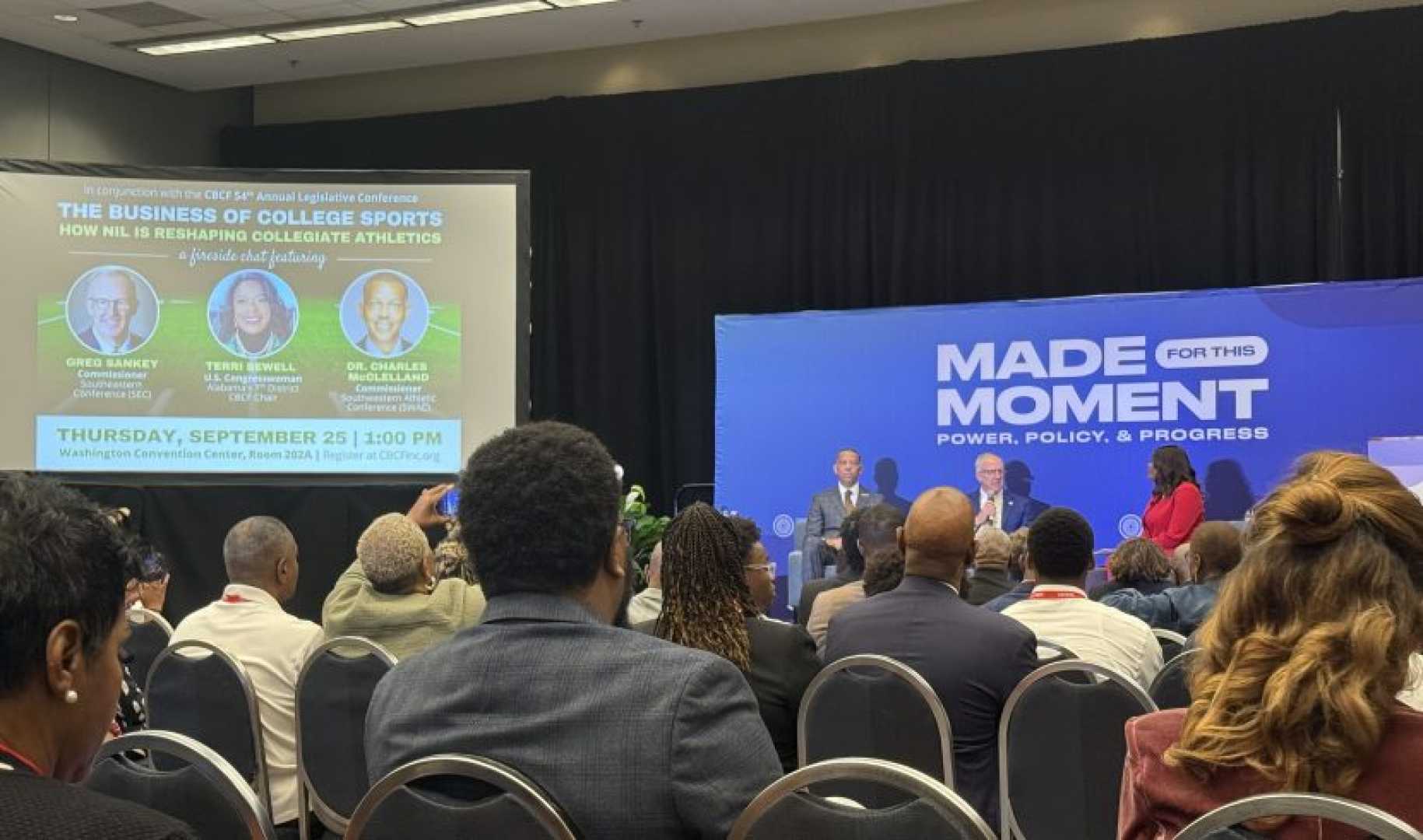Politics
Congressional Black Caucus Pushes for Amendments to College Sports Legislation

WASHINGTON, D.C. — A task force of the Congressional Black Caucus (CBC) is negotiating with Republican lawmakers to revise parts of the SCORE Act, a college sports legislation, according to Ross Dellenger of Yahoo Sports. The caucus, consisting of 59 Democrats from both chambers, plays a crucial role in supporting the Republican-authored bill.
Rep. Terri Sewell (D-Ala.), a CBC member, stated the caucus has reached agreements on key revisions to the legislation. These changes could help advance the bill, which had been stalled. Sewell noted that Republicans have accepted modifications to two of the caucus’s four main concerns.
The proposed changes include extending the bill’s medical provisions, mandating schools to provide five years of post-graduate healthcare instead of the current three, and increasing athlete representation on NCAA governance committees from 25% to 35%. Sewell conveyed that discussions about shifting supervisory responsibilities from state attorneys general to the Federal Trade Commission are still ongoing.
The CBC’s negotiations are critical for the bill’s chances of passing in the Republican-controlled House and later in the Senate. This legislative proposal aims to provide antitrust protections, preempt conflicting state laws regarding name, image, and likeness (NIL) payments, and affirm that athletes should not be classified as school employees.
Despite receiving support from seven Republicans and two Democrats, the SCORE Act has experienced delays in congress. Southeastern Conference Commissioner Greg Sankey emphasized during a panel discussion that the bill includes limited liability protections to safeguard against lawsuits as the NCAA makes transitions in its policies.
Furthermore, starting this year, schools can pay up to $22 million to all athletes, following a 2021 Supreme Court decision. On this topic, Sankey reiterated his commitment to prevent student-athletes from being classified as school employees due to the financial implications it would impose.
During the annual legislative conference, HBCU Commissioner Charles McClelland voiced concerns regarding the impact of NIL rules on athletic funding and the potential burden of increased taxes if student-athletes were considered employees. He highlighted the existing reliance of many smaller programs on institutional funding.
The CBC’s push for amendments occurs amid a growing consensus for a national NIL framework as 38 states have already enacted laws. The variations in policies among institutions in states without NIL laws create disparities across college athletics.
The ongoing discussions aim to align the interests of college athletes, institutions, and lawmakers effectively, showcasing the CBC’s influence in the legislative process surrounding college sports.












